Teaching
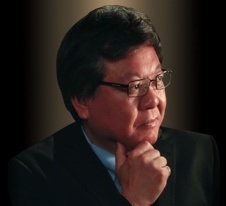

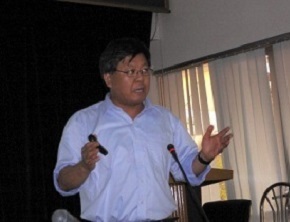
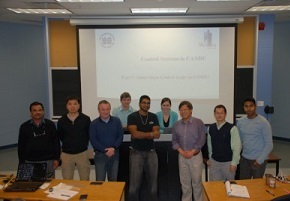
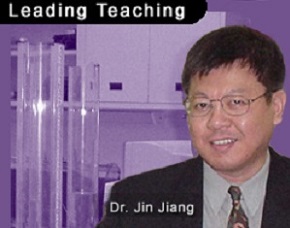
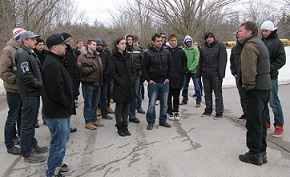
|
A personal mission statement I shall always strive to become the most effective teacher that I can be through constant learning and improvement of my teaching skills; and I shall always strive to become the most innovative educator by utilizing new technologies to transfer knowledge to students in the most effective way possible. My philosophy of teaching: learning through experimentation Often, one of the most effective ways to learn a new concept or master a new skill is simply to try it out on your own. There is nothing more exciting for students than to see how a theoretical concept taught in the classroom actually works in practice. Such experiments further reinforce the learning activities, and this is particularly true in a discipline such as Engineering. For this reason, I have been very proactive in promoting ‘learning-by-doing’ throughout my academic career. I believe that the study of engineering is one of the best ways not only to gain a better understanding of our modern society, but also to develop the ability to function productively. Except for some basic mathematics and science courses, most students enter the engineering program with little engineering knowledge. Teaching engineering thus requires sensitivity to the needs of students as they embark on the challenging and fruitful mission of acquiring their engineering education. Theory is important, but it is also important to keep the students focused on the practical applications of the theories they are learning. This requires an engineering professor to relate the course materials to practical applications as much as possible. Courses taught
|
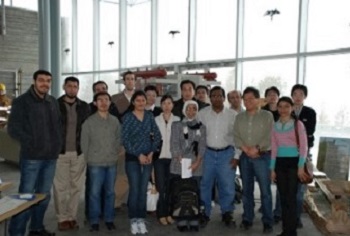
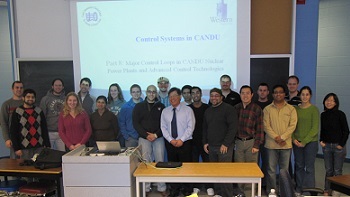
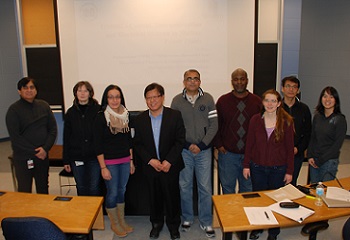
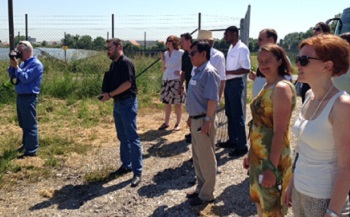
|
|
UN 0601: Control, Instrumentation and Electrical Systems in CANDU based Nuclear Power Plants This course covers the basic control, instrumentation and electrical systems commonly found in CANDU based nuclear power plants. The course starts with an overall view of the dynamics associated with different parts of the plant, i.e. reactor, heat transport systems, moderator, steam generator, turbine, and electrical generator. Based on such knowledge, the control and regulation functions in the above systems are then defined. Different instrumentation and measurement techniques are examined, along with control strategies. The time and frequency domain performance characterizations of control loops are introduced with consideration of actuator and sensor limitations. Different controller design and tuning methods and instrumentation calibration procedures are discussed. Two modes of operation of CANDU plants will be analyzed, i.e. normal mode and alternate mode. Advanced control technologies, such as distributed control systems, Field bus communication protocols are introduced in view of their potential applications in the existing and newly constructed CANDU power plants. The electric systems in the CANDU plant will be examined. The modeling of the dynamics and control devices for the generator will be covered in details. The dynamic interaction between the CANDU power plants and the rest of the electric power grid with other generating facilities and various types of load will be studied. |
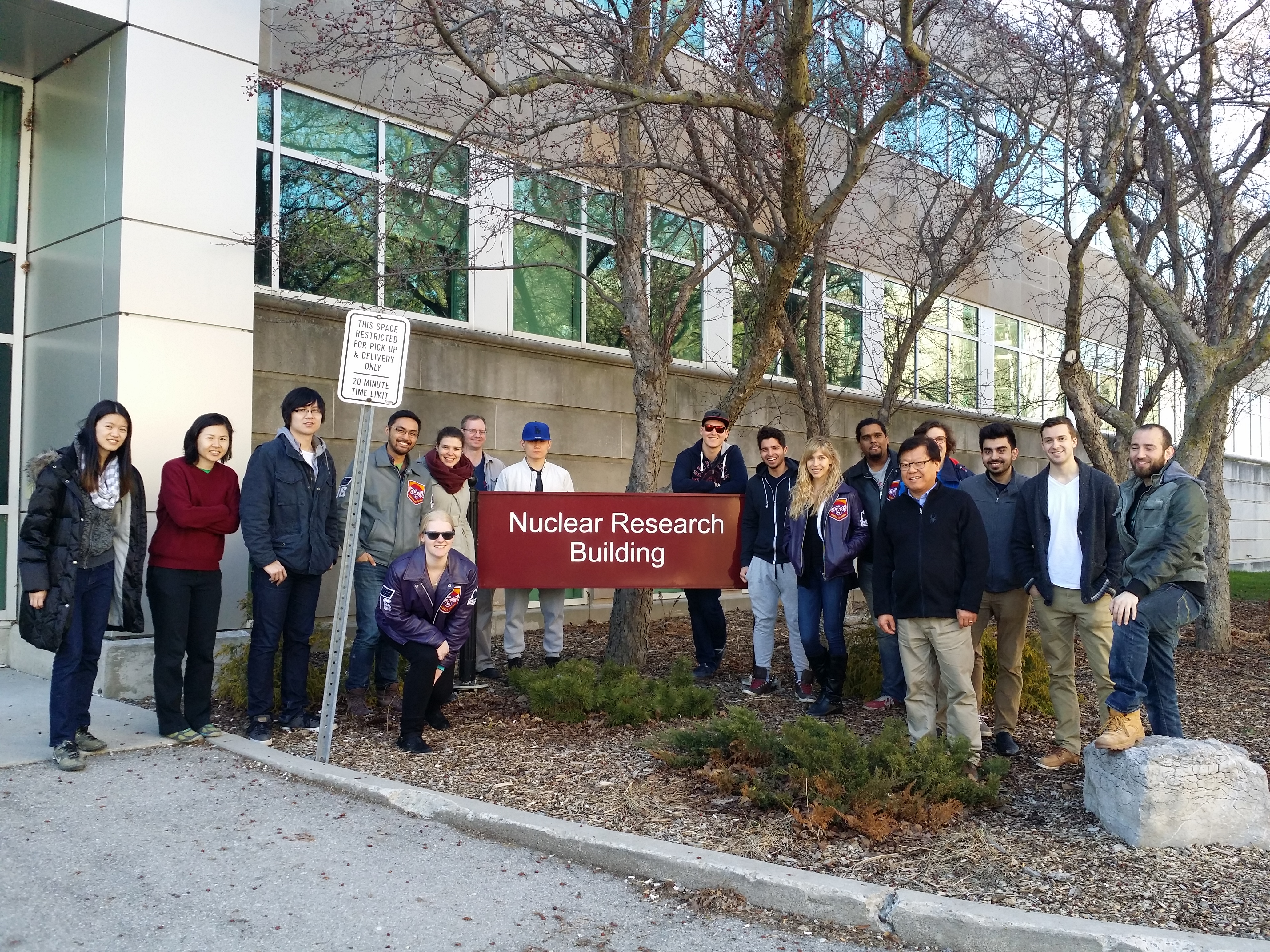
|
|
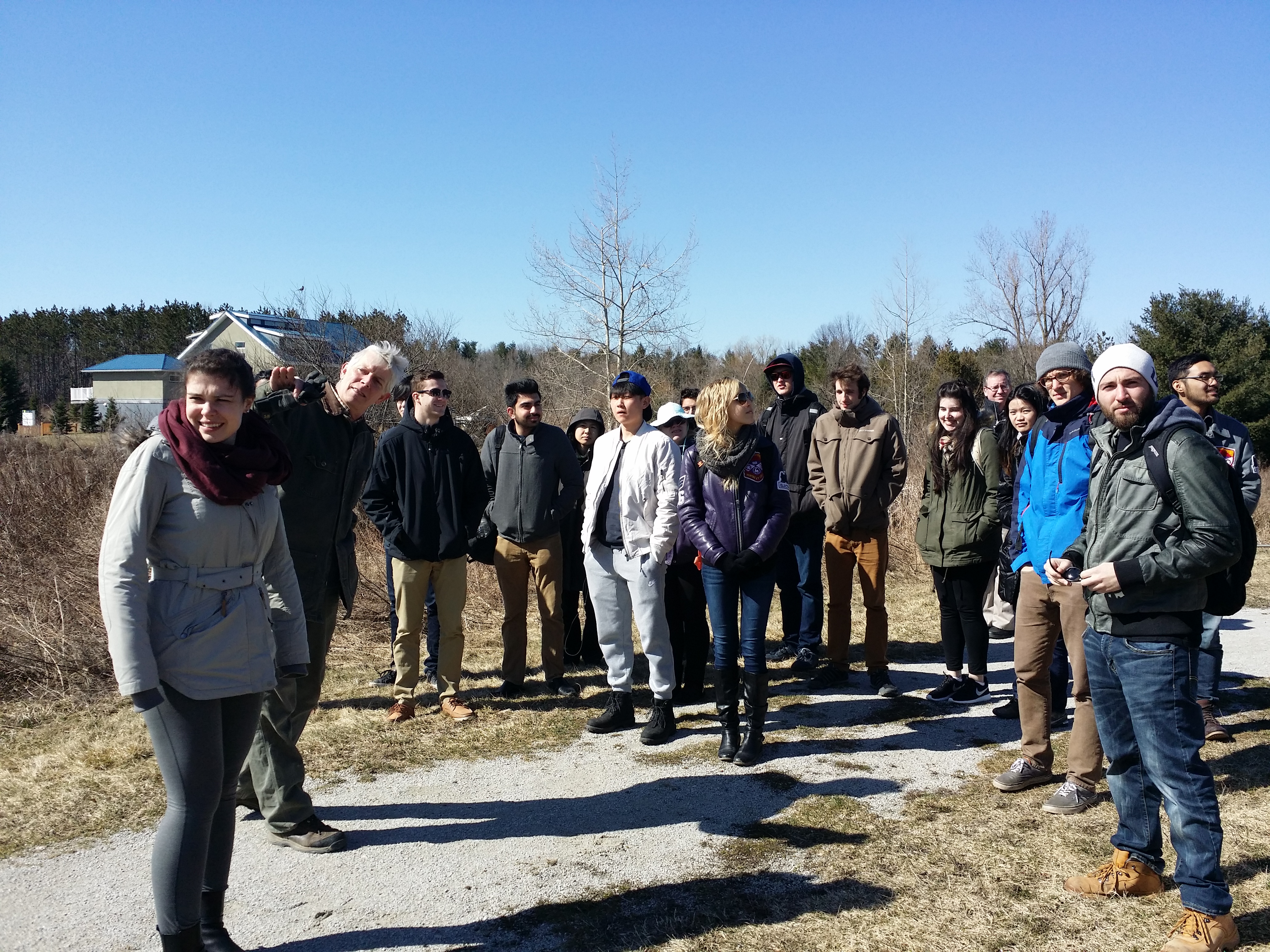
|
ES 665a/b: Adaptive Control Systems Upon completion of this course, the student will be able to select the most appropriate adaptive control strategies for a particular application, design and simulate the adaptive control system, and evaluate its performance under various system operating conditions. The course starts with an introduction to different recursive parameter estimation schemes, as applied to dynamic system identification. Two main adaptive control strategies are treated in detail: (i) Model-Reference Adaptive Control, and (ii) Self-tuning Regulators. Issues concerning stability, convergence and robustness of adaptive control systems are covered in a stochastic environment. Topics covered in this course include introduction to adaptive control systems; real-time dynamic system identification; model Reference Adaptive Systems (MRAS); self-tuning adaptive controls; stochastic adaptive control; stability, convergence and robustness of adaptive control systems; and applications of adaptive control systems. |
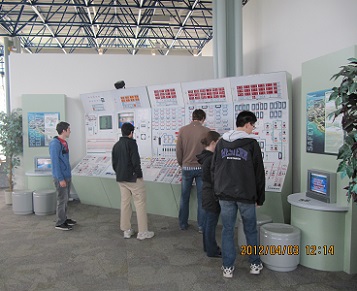
|
|
ES 659a: Linear Systems and Modern Control Theory Upon completion of this course, the student will be able to analyze and design linear control systems using a state-space approach. Topics covered in this course include state-space analysis of dynamic systems; canonical forms; controllability and observability; relationships between transfer functions and state-space representation; modal control; quadratic optimal control; state estimation and observation; and current research topics in control engineering. |
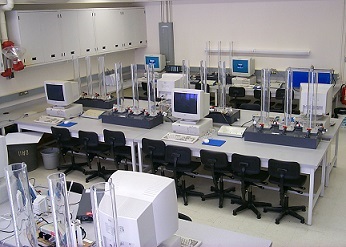
|
|
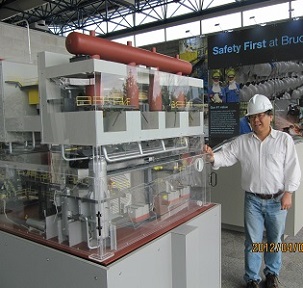
|
ES 658a/b: Random Signals, Adaptive and Kalman Filtering Upon completion of this course, the student will be able to analyze both random signals and the response of linear time-invariant systems to random signal inputs in a stochastic framework. The student will also be able to design and implement various types of adaptive and Kalman filtering schemes for advanced engineering applications. The course introduces the student to basic mathematical techniques used in describing both random signals and the responses of linear time-invariant systems to random signals. Based on these techniques, the concepts of optimal (Kalman) filtering, prediction, and smoothing are introduced. Various adaptive filtering algorithms are examined including: steepest descent, stochastic gradient, singular value decomposition (SVD), and QR decomposition. Topics covered in this course include the mathematical description of random signals; responses of linear time-invariant systems to random inputs; linear prediction and optimal filters; discrete Kalman prediction, filtering, and smoothing; least squares-based adaptive filters; recursive least squares-based adaptive filters; and engineering applications of adaptive and Kalman filters. |
|
|
ECE 9651: Power System Dynamics, Control and Stability This course first examines the dynamic behavior of several major power system components. Dynamic interactions amongst these components, as well as their effects on overall system performance and stability are then studied. Based on this knowledge of system dynamics, several conventional control techniques for the improvement of system stability are then introduced. Topics covered in this course include major power system components with dynamics; steady-state operation, dynamic transients, and system stability; frequency stability vs. voltage stability; modeling of power systems for stability studies; the dynamic behavior of a single-machine infinite bus system; dynamic behaviors of power system networks; small-signal analysis of power system stability; the use of control devices for stability enhancements in power systems; and the stability of power systems with renewable energy sources and power electronic interfaces. |
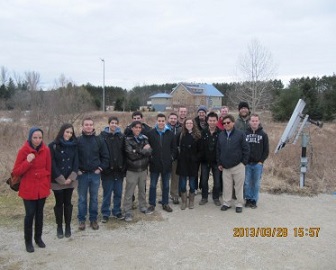
|
|
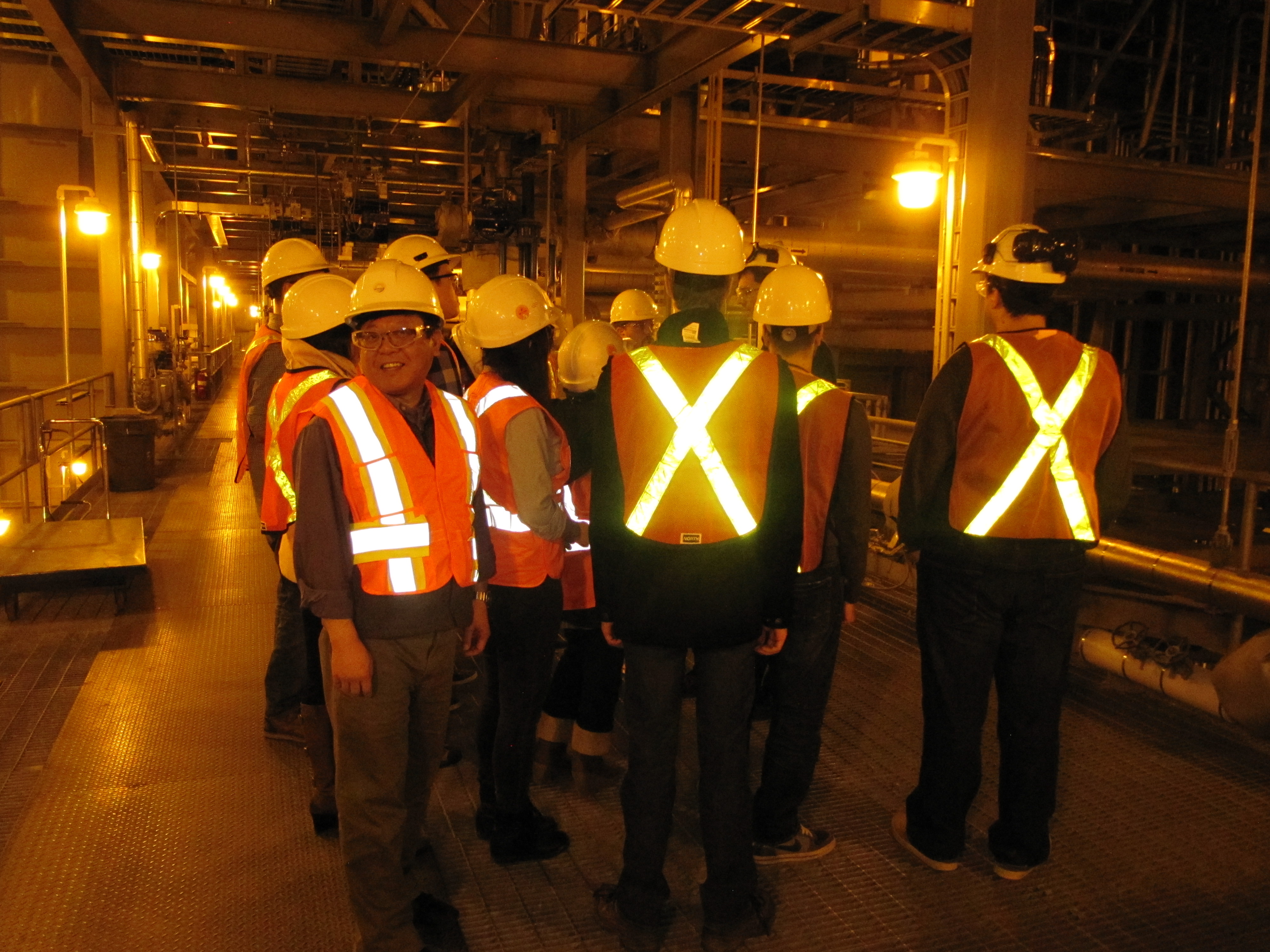
|
ES 521b: Fault Tolerant Control Systems Upon completion of this course the student will be able to design and analyze two types of fault tolerant control systems: Reliable Control, and Reconfigurable Control. The student will also be able to design and implement various types of fault detection and isolation algorithms for dynamic systems. Topics covered in this course include an introduction to faults and fault tolerant control systems; redundancy in fault tolerant control systems; performance measures in fault tolerant control systems; design of passive fault tolerant control systems; design of active fault tolerant control systems; controller reconfiguration; fault detection and isolation for control system reconfiguration; statistical hypothesis tests in FDI schemes; design/analysis of FIC systems in deterministic domains; design/analysis of FTC systems in stochastic domains; reliability evaluation of fault tolerant control systems; and fault tolerant control system design examples. |
|
|
ECE 9505: Control, Instrumentation and Electrical Systems in Nuclear Power Plants The objective of this course is to provide students with essential knowledge of control, instrumentation, and electrical systems in NPPs. Emphasis are placed on CANDU plants; however, other widely used reactor types will also be discussed. By the end of the course the student should be able to identify major types of control loops, and instruments used in a nuclear power plant. He/she should also be able to perform controller design and tuning using time and frequency domain performance criteria. Topics covered in the course include introduction to nuclear energy and nuclear power plants; major systems in CANDU nuclear power plants; basic instrumentations; modeling and design of control systems; electrical systems in a nuclear power plant; and modern control systems for nuclear power plants. A field trip to one of Ontario’s nuclear power plants is also arranged as a part of this course. |
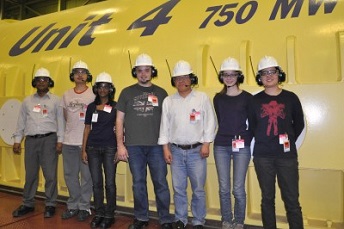
|
|
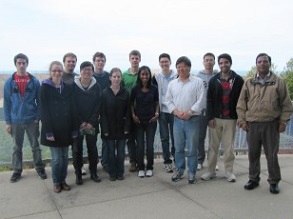
|
ECE 9500: Fault Tolerant Control Systems Upon completion of this course students will be able to analyze and design two types of fault tolerant control systems: Reliable Control, and Reconfigurable Control. The student will also be able to design and implement various types of fault detection and isolation algorithms for dynamic systems, as well as perform failure probability analysis based on IEC standards. The course covers several topics related to fault tolerant control systems, including redundancy in fault tolerant control systems; performance measures in fault tolerant control systems; design of passive fault tolerant control systems; design of active fault tolerant control systems; controller reconfiguration; fault detection and isolation for control system reconfiguration; statistical hypothesis tests in FDI schemes; design/analysis of FTC systems; and fault tolerant control system design examples. Fault Tolerant Control System Design Examples. |
|
|
ECE 469b: Digital Control This course covers the fundamental theory and practical implementation of digital control systems. Z-transform is used extensively to analyze and design digital control schemes to meet system performance criteria. Essential elements in digital controls, such as A/D, D/A, and sample-and-hold devices will be discussed. Topics covered in this course include an introduction to digital control systems; discrete signals, systems and Z-transform; sampling and signal reconstruction; analysis of digital control systems, including that using open-loop and closed-loop techniques; and digital controller design. Upon completion of the course students will be able to convert between s-plane and z-plane system representations; test for system stability presented as either frequency responses or as a transfer function; and to demonstrate understanding of the effects of digitizing control signals on system performance. |
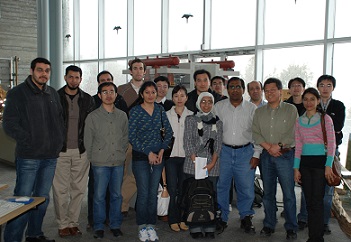
|
|
|
ECE 464b: Electrical Power Systems II The objective of this course is to provide the student with a detailed understanding of the modeling, hardware and operation of modern electrical power systems. Topics such as power system fault calculations, economical operation, and power system stability analysis will be covered in detail. Upon the completion of this course the student will be able to formulate system equations for fault analysis and calculate optimal operation schedules for given power system networks. The student will also be able to use least squares-based schemes to estimate system states and will learn how to analyze the stability of simple power systems and use control techniques to enhance system stability. Topics covered in this course include power system fault analysis; economical operation of power systems; state estimation of power systems; and power system stability. |
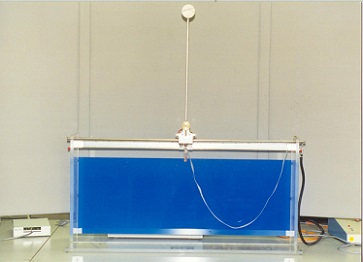
|
|
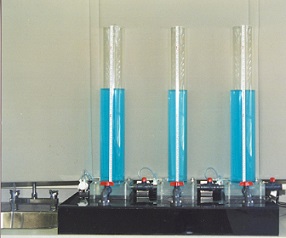
|
ECE 4439b: Conventional, Renewable and Nuclear Energy The objectives of this course are to provide students with an understanding of energy and its various forms, as well as to teach current techniques of converting various forms of energy into electricity. The course will also discuss present and future energy issues facing our society. Upon the completion of this course students are expected to have a qualitative and semi-quantitative understanding of energy resources presently available, the methods of their conversion to electricity, and their future prospects for human use; to develop an understanding of the traditional electric power system and its future; and to develop an understanding of the principles of operation of various electric power plants, including fossil-fuel, nuclear, and renewable. Topics covered in this course include an overview of global energy reserves and sustainability; the history and structure of the traditional electric power system; coal and gas-fired electric power generation; nuclear energy; and renewable energy and distributed generation, including hydroelectric, photovoltaic-solar, thermal-solar, wind power, fuel-cells, biomass, and tidal and wave power. |
|
|
ECE 374b: Electromechanics This course provides an introduction to alternating current (AC) circuits and various types of electrical machines used for mechanical engineering applications. The operating principles and solution techniques of AC circuits, as well as the characteristic properties of electromagnetic energy conversion devices will all be covered. Upon completion of this course the student should be able to: solve basic AC circuits; understand the relationships between electricity and magnetism; and perform simple calculations for various electric machines used for mechanical applications. Topics covered in this course include steady-state analysis of sinusoidal AC circuits; power in steady-state AC circuits; the basic concepts of electric power-systems; transformers; notation of single and three phase systems; electromagnetism, magnetic circuits and magnetic materials; electromagnetic energy conversion principles; mechanical force, electromotive force and energy relations; DC machines; synchronous machines; and induction motors. |
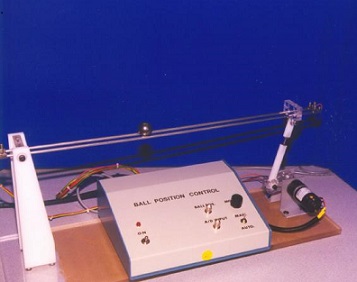
|
|
|
ECE 331a: Signal Processing I Digital Signal Processing (DSP) is concerned with the digital representation of signals and use of digital signal processors and related software to analyze, modify, or extract information from signals. DSP is one of the fastest growing fields in modern electronics, being used in almost all areas where information is handled digitally or controlled by a digital processor. The objective of this course is to introduce students to the fundamental properties of discrete-time signals, systems, and basic signal processing algorithms. Topics covered in this course include signals and systems, including sampled data sequences, linearity, time-invariance, stability, and causality; linear time-invariant (LTI) systems, including linear constant coefficient difference equations, unit sample response, convolution, initial condition response and stability; frequency responses, including steady-state sinusoidal responses of LTI systems, frequency response functions, and ideal filters; discrete Fourier transformations, including periodic sequences, discrete Fourier series, finite duration sequences, discrete Fourier transform and properties, Fast Fourier Transform (FFT), convolution, and spectrum analysis; Z-transforms, including their definition, right-sided sequences, properties, convolution, transfer functions, stability, inverse transforms, solution of difference equations, stability, forced and total response; and non-recursive filters, including design by Fourier series (lowpass, highpass, bandpass and bandstop), Gibb's phenomenon, the effects of windows, and differentiators. Upon completion of this course, students will be able to convert continuous signals to digital ones; check the stability, causality and time-invariance of discrete systems; calculate the unit sample response of a discrete system; evaluate the initial condition response of a discrete system; distinguish steady-state sinusoidal responses from transient responses; calculate the frequency response of a discrete system; define the characteristics of ideal filters; calculate DFT and IDFT of a given data sequence; describe the fundamental concept of FFT technique; perform convolution in frequency domains; examine the frequency spectrum of a given data sequence; calculate the Z-transform of a given data sequence; perform convolution in the Z-domain; solve difference equations using Z-transform techniques; design FIR filters using Fourier techniques; and accurately describe Gibb's phenomenon. |

|
|
|
ECE 330b: Control Systems This course introduces the theory of linear control system design and analysis, emphasizing the analysis of dynamic behaviour and the design of feedback control strategies to meet system performance criteria. Students are assumed to have some familiarity with Laplace transform and the dynamic response of equipment and processes. Topics covered in this course include an introduction to control systems and mathematical modelling; characteristics and performance of feedback control systems; stability of linear feedback control systems; root locus Analysis; frequency response analysis; and control system design. |
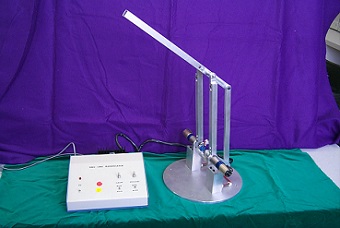
|
|
|
ECE 238a: Introduction to Electrical Engineering The object of the course is to provide the student with a firm grasp of the essential principles of electric circuit analysis and basic electronics. These principles form the basis of the software engineering curriculum, making a strong understanding of these principles crucial to success in this course. However, while the treatment of this theory is mathematically sophisticated, it is well within the capability of second-year engineering students. Topics covered in this course include eclectic charges, ideal circuit elements, and polarities; simple resistive circuits; Ohm's and Kirchhoff’s Laws; techniques of direct current circuit analysis; nodal, loop and mesh analysis; network theorems, including linearity, superposition, source exchange, Thevenin's and Norton's theorems; analog signals, signal description, digital signals, and digital systems; op-amps, including their basics features and applications; semiconductors, diodes and diode circuits, basic power supplies and clippers; and transistors, BJT, FET, biasing, and amplifiers. Students are expected upon completion of this course to be able to represent the voltage and current of ideal circuit elements with appropriate polarities; calculate the voltage and current profiles of resistive circuits; perform nodal and mesh analyses of resistive circuits; prove the linearity theorem; apply superposition principles to calculate current or voltage in a circuit; represent a circuit using Thevenin’s or Norton's equivalent; represent analog signals; describe the basic concept and applications of op-amps; analyze circuits with diodes; perform calculations of basic power suppliers; and analyze simple transistors, BJT, FET, and amplifiers. |
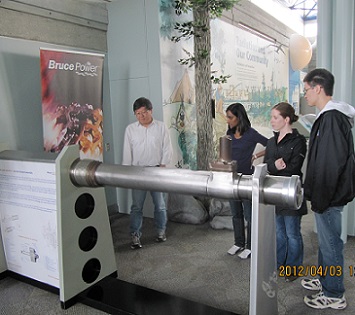
|
|
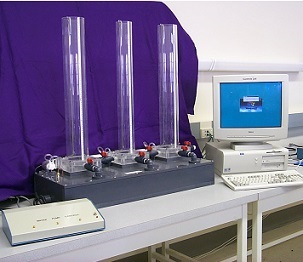
|
ECE 2233b: Electric Circuits II This is the second electric circuit course for students in either the Electrical or Computer Engineering Program. It is intended to extend the concepts learned about direct current (DC) circuits in ECE 2205a/b to alternating current (AC) circuits. In addition, the course introduces several new circuit analysis tools, such as the Laplace Transform for transient analysis, as well as frequency domain techniques, such as Fourier, for examining the frequency responses of circuits. Upon completion of this course, students are expected to be able to solve steady-state AC circuits by calculating the current and voltage quantities using phasor techniques; calculate different types of power in an AC circuit; apply the Laplace Transform technique to solve transients in electric circuits with arbitrary inputs; represent circuit components in terms of transfer functions; apply Fourier analysis techniques to determine the frequency responses of different circuits; and characterize two-port networks and calculate equivalent networks of interconnected two-port networks. Topics covered in this course include phasor representation and analysis of AC circuits; steady-state power analysis in AC circuits; the Laplace transform; applications of the Laplace transform in the transient analysis of circuits; transfer functions of circuits from input to output; frequency response and resonance of a circuit; Fourier analysis techniques for signals and circuits and Parseval’s theorem; and two-port network analysis. |
|
All rights reserved. 2015-2016
Phone: (519) 661-2111 Ext. 88320; Fax: (519) 850-2436; E-mail: jjiang@uwo.ca Office: TEB 333, Electrical & Computer Engineering, Faculty of Engineering The University of Western Ontario, London, Ontario, Canada N6A 5B9 |